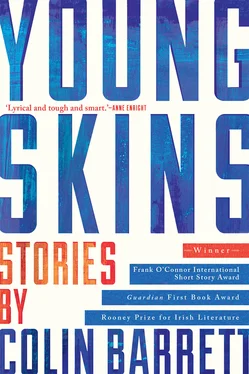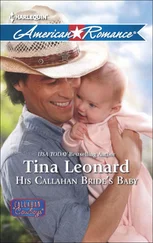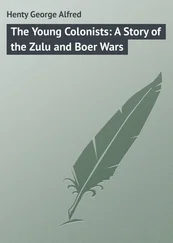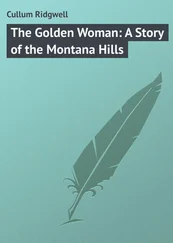‘Be awful if you were to tip that thing onto its head,’ I say.
‘Easy,’ Tug says.
He rocks and rocks the car until it is squeaking madly on its wheels and bouncing in place. It is parked at an angle, parallel to the lip of the kerb which is a couple of inches off the street, an angle that favours Tug. At just the right moment Tug bends down and digs his hands in under the springing hatchback’s bed and pulls up with all his might. The wheels leave the kerb. For a moment the car hangs on its side in the air — I see the vasculature of blackened pipes that run along its underside — then Tug lurches forward and the hatchback goes over onto its roof with an enormous crunching sound. The passenger window shatters, the glass skittering in diamonds around our feet. The wheels judder in the air and Tug reaches out and stills the one closest.
‘Well done, big man.’
Tug is puffing, his cheeks inflamed. He shrugs his shoulders. A car drifts by in the street. Child faces jostle in the rear window for a look at the overturned hatchback. An old codger ambles out of Dockery’s, fitting and refitting a wilted porkpie hat onto his trembling head. His loosely knotted tie flaps at his flushed, corrugated face. The codger grins yellowishly.
‘How are the men?’ he says.
‘Fucking super,’ Tug says.
The codger salutes us and wanders right by the wrecked car, not seeming to notice it at all.
I look down and see, half in and half out of the shattered window, a brown leather handbag, its contents scattered in the gutter. There’s wadded tissues, loose coins, crumpled sweet wrappers, a ballpoint pen, receipts, a roll-on stick of underarm antiperspirant, a gold-rimmed black cylinder of lipstick. I pick up the lipstick, unsnap its cap. I go to work on the passenger door. In bright red capitals I spell out my plea:
M A R R Y M E
‘Shit,’ Tug says, and clicks his jaw. ‘Hardcore, Jimmy.’
I shrug and pocket the lipstick. I pick up all the other things and put them in the handbag. I pass the bag through the broken window and tuck it into the passenger-seat footwell.
‘Back to yours, big man?’ I say.
‘Sound,’ Tug says.
Tug lives on the other side of the river, in Farrow Hill estate with his mam. Like Marlene, his da is gone, in the ground ten years now. Big Cuniffe’s heart burst ushering yearling colts from a burning barn. Tug’s mother is a sweet old ruin of an alcoholic who spends her days rationing gin on their ancient, spring-pocked settee, lost in TV and her dead. You say hello and she offers an agreeable but doubtful smile; half the time she has no idea if you’re part of the programme she’s engrossed in, a figment of memory, or actually there, a live person before her. Sometimes she’ll call me Tug or Brendan, and she’ll call Tug Jimmy. She’ll call Tug by his father’s name. Tug says there’s no point correcting her. These distinctions matter less and less as she settles into her dotage.
We pit-stop at Carcetti’s fast-foodery and chow down on chips as we take the towpath by the river. Slender reeds brush against one another as cleanly as freshly whetted blades. The wet shore-stone, black as coal, glints in its bed of algae. Crushed cans of Strongbow and Dutch Gold and Karpackie are buried in the mud like ancient artefacts. Thickets and thickets of midges waver in the air. They feast on the passing planets of our heads.
Up ahead a wooden bridge traverses the river.
The bridge is supposedly off limits. During a spring storm earlier this year a tree was swept downstream and collided with the bridge and there it still resides, the great gnarled brunt of the trunk rammed at an upward forty-five degree angle amid ruptured beams and splintered fence posts. The bridge sags in the middle but has not yet collapsed. Instead of removing the tree’s corpse and fixing the bridge, the town council erected flimsy mesh fences at both shores and harshly worded signage threatening a fine and risk of injury/death to anyone attempting to cross.
But the fences have been trampled down, for the bridge is a handy shortcut to Farrow Hill and, despite the council warnings, is still regularly used by estaters like Tug to get in and out of town.
As we approach we see that there are three kids playing by the bridge: two very young girls and a slightly older boy. The girls look five or six, the boy nine, ten.
The boy has white hair — not blond, white. He’s wearing a cotton vest dulled to taupe and a pair of shiny purple tracksuit bottoms, one leg ripped up to the knee. The girls are in grubby pink short-and-T-shirt combinations. The boy’s face is decorated with what looks like tribal warpaint — a thumb-thick red-and-white stripe applied under each eye, and a black stripe running down his nose. He’s wielding an aluminium rod — it could be a curtain rail, a crutch, the pole of a fishing net. One end of the rod is crimped into a point.
‘What are you, an injun?’ Tug asks him.
‘I’m a king!’ the boy sneers.
‘What class of a weapon is that? A lance, a sword?’ I say.
‘It’s a spear,’ he says.
He stamps up along the flattened fence and hops back onto the towpath. He goes through a martial arts display: slashing the air with the rod then spinning it over his head, fluidly transferring it from one twisting hand to the other. He finishes by leaning forward on one knee and brandishing the crimped end of the rod at Tug’s sternum.
‘This is my bridge,’ he says, baring his teeth.
‘And what if we want to pass?’ Tug says.
‘Not if I don’t say so!’
Tug proffers his crumpled bag of chips.
‘We can pay our way. Chip, King?’
The boy reaches into the bag and takes a wadded handful of vinegar-soaked chips. He examines the clump, sniffs them, then peels the chips apart and divides them between the girls. The girls eat them quickly, one by one. They tilt their heads back and make convulsive swallowing movements with their necks, like baby chicks.
‘Good little birdies,’ the boy says, and pats each girl on the head.
They giggle to each other.
‘You shouldn’t take things from strangers,’ Tug says.
‘ I gave them the chips,’ the boy says, tapping his vested breast with his spear. ‘What business do you have across the bridge?’
‘We’re looking for someone. A boy. A little blondie-haired fella,’ Tug says, ‘a little bit like you. He went away but nobody knows where.’
The boy knits his brow. He steps back up onto the fence and peers along the curvature of the river.
‘There’s no one like that here,’ he says finally. ‘I would’ve seen him. I’m the King, I see everything.’
‘Well, we have to try,’ Tug says.
Leave it be, Tug, I want to say, but I say nothing. So much of friendship is merely that: the saying of nothing in place of something.
I turn and take a quick look beyond the towpath, along the way we came. A hill leads up to the road and beyond that is the squat, ramshackle skyline of the town. I hear — or think I hear — sounds of distant commotion, shouting, and I picture Mark Cuculann outside Dockery’s, raging at the inverted wreck of his car. Marlene will be by his side, arms folded, and I can envisage the look she’ll be wearing, the verdigris glint of her narrow-lidded eyes, a smile flickering despite itself about the edges of her lips, lips painted the same shade as the proposal I scrawled for her on the passenger door. I feel for the cylinder of lipstick in my pocket, take it out, give it to one of the girls.
‘More gifts,’ I say. ‘Well, let’s get going then, Tug.’
Tug goes to step past the boy. The boy draws up the rod and jabs the crimped end into Tug’s gut. Tug grasps the rod, twists it towards himself. He mock-gasps, and claws the air.
Читать дальше












